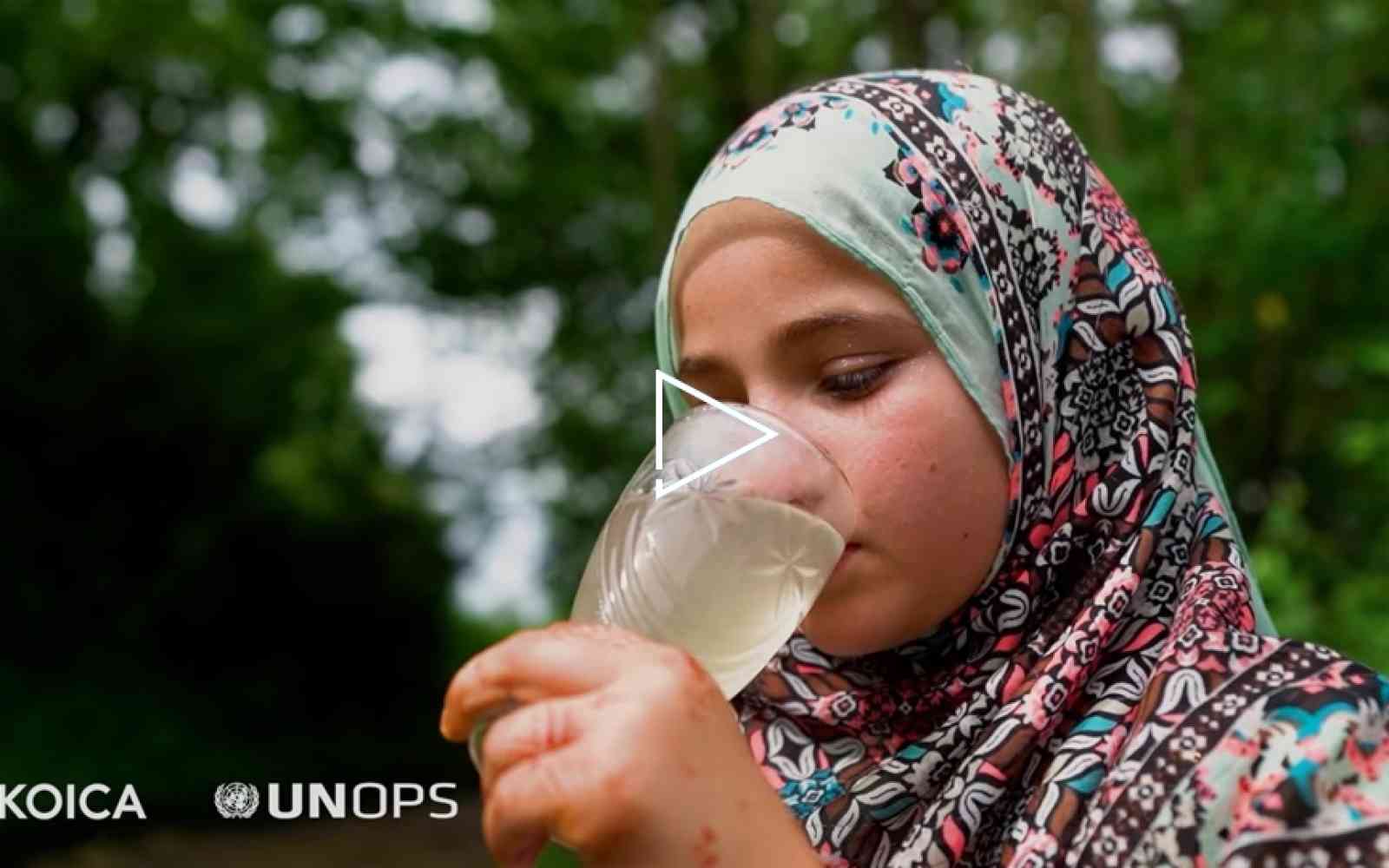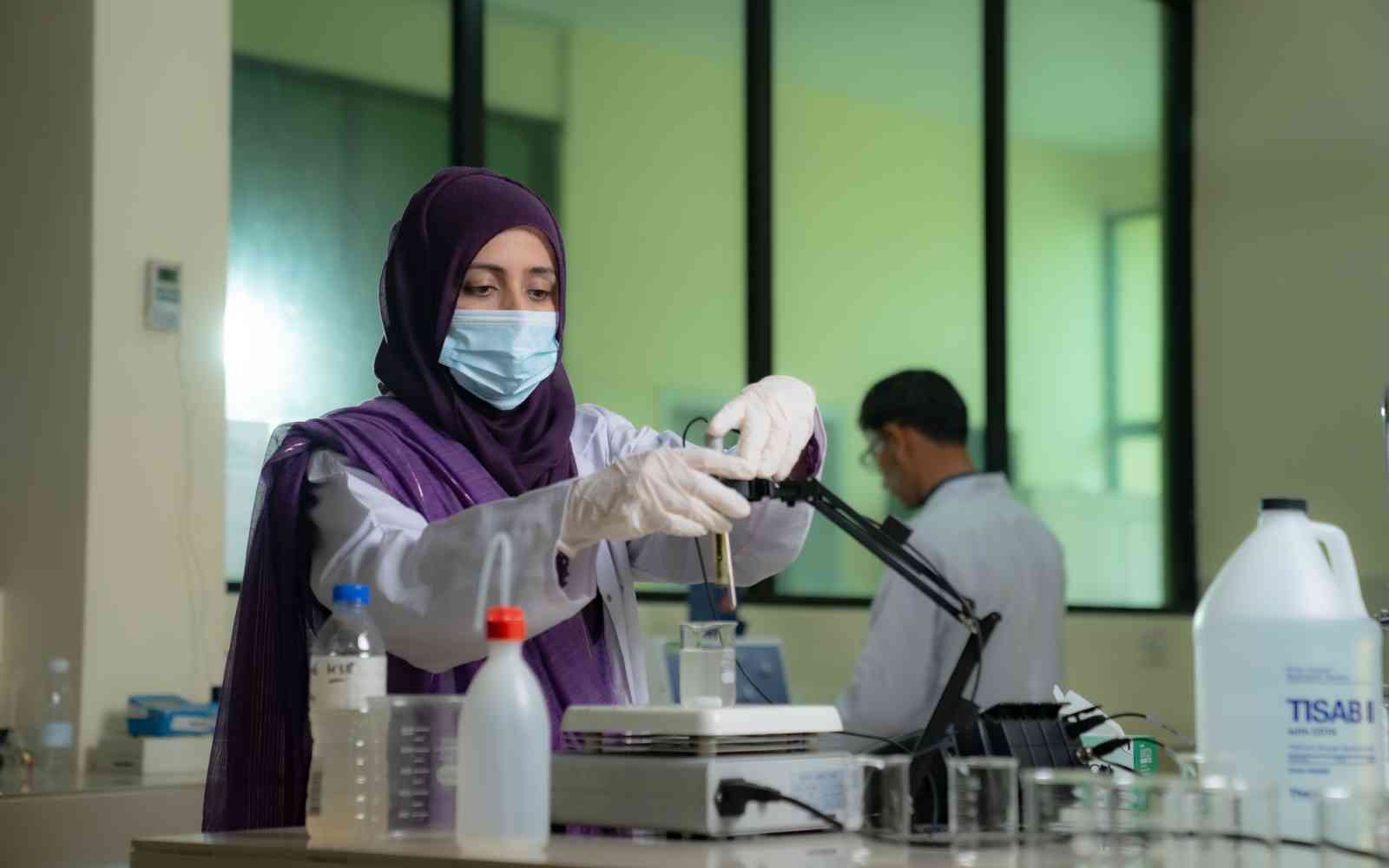The United Nations Office for Project Services (UNOPS)

Breaking down barriers for female police officers
Better police training facilities aim to improve gender equality and attract more women into law enforcement in Pakistan.
Watch to learn more about how the new facilities are helping female trainees at the National Highways and Motorway Police Training College in Sheikhupura.
Less than two per cent of Pakistan’s entire police force is made up of women. The lack of female police officers has a significant impact on gender equality in the country – reducing the willingness of women to report crimes and limiting their access to justice.
“Sometimes we see women who are not comfortable discussing their cases with the male officers,” explains Asma Baloch, a trainee at the Shahdadpur Police Training College in Sindh Province. “Most of the time, they think they won’t get justice.”
While cultural and social norms are the main reasons behind the shortage of female recruits, inadequate facilities at training colleges can also be a hindrance when it comes to attracting more women to the field.
“The biggest problem we had was the washrooms. On the first day we arrived, there was no hot water and the toilets were very dirty,” says Naeema Siddiqui, a trainee patrol officer at the National Highways and Motorway Police Training College in Sheikhupura, Pakistan.
Naeema is one of around 100 young women currently enrolled at the training college, which receives recruits from all over the country, who live on campus in shared dormitories. According to Deputy General Inspector Mehboob Aslam, the commandant of the college, the housing for women had not been updated since it was opened in 1992 and was unfit for purpose.




Almost 1,000 kilometres away at the Shahdadpur Police Training College, the story is all too familiar. According to Asma, the lack of dedicated facilities for women had led to overcrowding. “We faced a lot of difficulties. It would get extremely hot and the bathrooms were unclean,” she says.
To help overcome some of these challenges, UNOPS partnered with the United States Department of State’s Bureau of International Narcotics and Law Enforcement Affairs to build new housing facilities for policewomen as part of country-wide efforts to remove the barriers discouraging women from joining the force.

Women make up only six per cent of recruits enrolled at the National Highways and Motorway Police Training College in Sheikhupura, Pakistan. The training college aims to increase this figure to 20 per cent in the coming years.
Designing infrastructure for women
The National Highways and Motorway Police Training College is the first of three colleges in the provinces of Punjab and Sindh to receive new dedicated living facilities for women.
UNOPS Project Manager Nauman Amin says women played an important role in the design process and were encouraged to share ideas on how their needs could be best addressed. “We brought the concept design for the facility here and discussed it with the female police trainees. They are the ones who will eventually live in this building so their input was critical.”
After consulting with the recruits, a family daycare area, study and laundry rooms were added to the design plans.


For Naeema, a mother of two who has aspirations of becoming an inspector general, the new facilities will provide her with a child-friendly space where she can host her family when they visit, enabling her to better balance her role as a mother with her training. “Being a mother, the thing I like most [about the new dormitory] is the kitchen and children’s play area,” says Naeema. “Honestly, it just felt like home.”
The design for the new facility also incorporated environmental considerations to ensure the building is equipped to deal with extremely hot temperatures common in the region. It is also resilient to earthquakes, something this province is prone to.
For trainees like Misbah Kashaf, the new facilities will make it easier to achieve her dream of becoming a police officer.

My parents have yet to see me in this uniform, but I am very excited as it’s a matter of pride for me that I'll be serving my country. This is something that makes me really happy. We can’t wait to move in.
Project details












